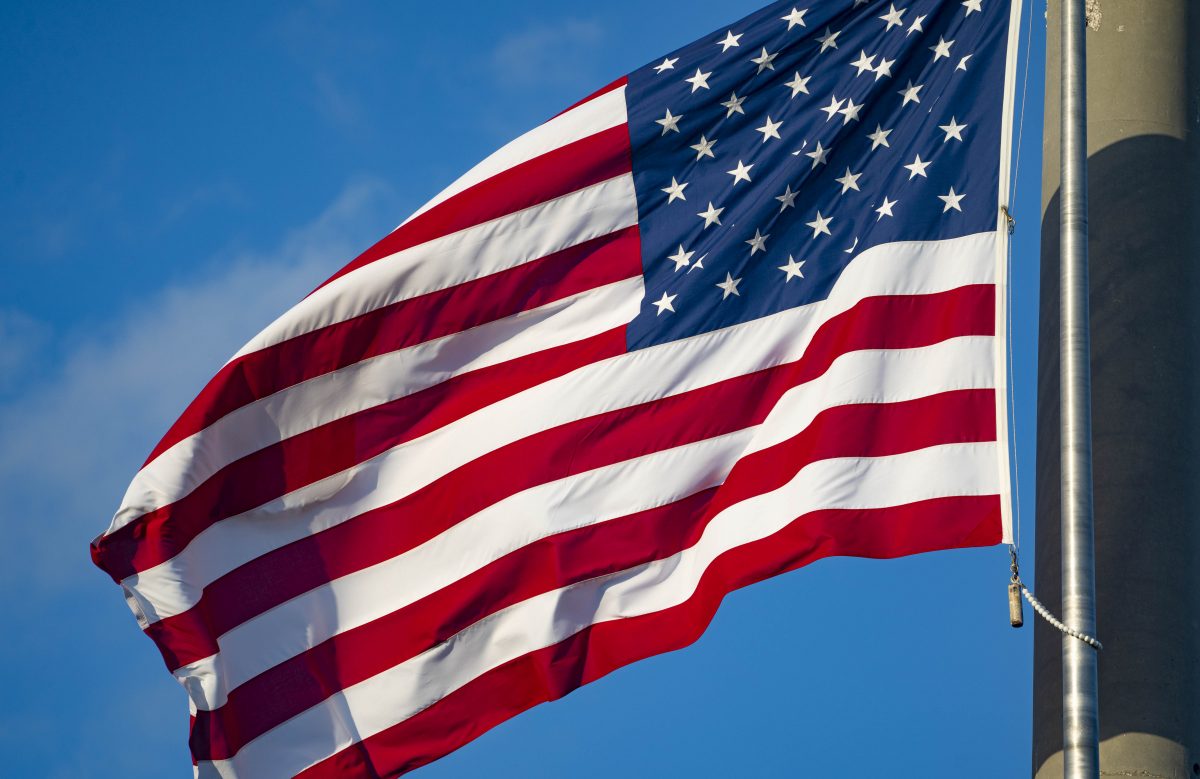
Attorney General William Barr released a four-page letter March 24 summarizing the investigation into potential ties between Russia the Trump presidential campaign, ultimately concluding that the report “did not establish that members of the Trump Campaign conspired or coordinated with the Russian government in its election interference activities.” The University of Miami community weighed in on the letter, expressing a variety of views on Barr, Trump and the investigation.
The full report, written by Special Counsel Robert Mueller, is not yet available to anyone— including Congress— apart from the attorney general and a few members of his staff.
Despite not knowing the full contents of Mueller’s report, UM Law professor Frances Hill was able to dig through the legalese of Barr’s brief summary. Hill was suspicious of the length of the letter, saying “there’s not one full sentence from Robert Mueller.”
Although his report is over 350 pages long, Mueller is only quoted in Barr’s letter as saying the report “does not conclude that the president committed a crime, it also does not exonerate him.”
School of Communication professor Antonio Mora, Emmy-award winning former anchor of Good Morning America, said this news raises questions for him. Primarily, he wonders how Barr and his team managed to summarize the entire report in just four pages and less than 48 hours. The full report should be made public, Mora said.
Hill said in addition to the length of Barr’s letter, she questions the motivation behind it.
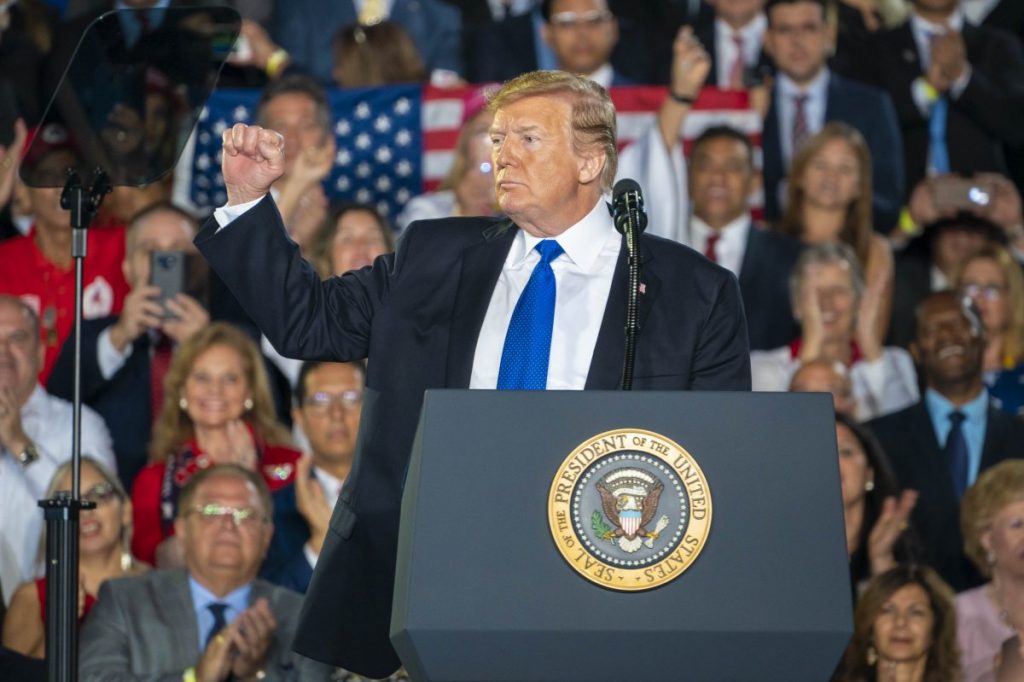
Barr is a proponent of the unitary executive theory, which states that the president alone is the executive branch and that the branch cannot obstruct justice, Hill said. Barr wrote about his support of this theory in a 19-page memo to Rod Rosenstein in June 2018, saying that Mueller was undermining the unitary executive in pursuing this investigation.
Hill said this is important context when considering Barr’s letter. “His letter wasn’t about the Mueller report as much as it was about the unitary theory of the executive,” she said.
As an expert on constitutional law, Hill said she thinks the letter alone is not enough to fully understand what happened between the Trump campaign and Russia.
“It’s about the future of our country,” she said. “I think ordinary Americans deserve some way of their gaining greater insight and hearing from the people who have been involved in this.”
Political science professor John Koger also has similar reservations about the letter. The Barr letter and Mueller report are “completely different,” he said. In Koger’s opinion, the media needs to do a better job differentiating between the letter and the actual report.
Koger said he believes there are still unanswered questions about collusion, despite the fact that Mueller found no criminal charges against the president.
“There was behavior that deviates from what anyone would expect from a president,” he said. “When they were approached by the Russian agents, why didn’t they notify the FBI?”
Samuel Terilli, a lawyer and the department chair of journalism and media management at UM, agrees with Hill and Koger.
“We should not have to rely solely on the summary prepared by President Trump’s attorney general,” he said, noting the nuanced language of the letter. “The report should be released and released quickly.”
However, not everyone on campus shares this opinion. Joseph Uscinski, an associate professor of political science, said he doesn’t care if the report is made public.
“What a lot of Democrats and liberals are hanging their hats on now is that there is this hope, this perverse hope, that there is real damning evidence in the report that is being hidden by Barr,” said Uscinski. “This is just an attempt by people on the left to hold on to their conspiracy beliefs in the face of disconfirming evidence.”
Donald McNeill, a marine sciences professor, said he distrusts all the upper levels involved in Mueller’s investigation and called it “the worst crime since Watergate.”
But professors aren’t the only people on campus talking about Barr’s letter and Mueller’s report— students also have opinions on the situation.
Junior business major Alex Sejas said there is no point in making the report available to the public. “The story will take another five or six news cycles to die, with or without the report,” he said.
However, Kayla Chand, a senior political science major, said she wants answers. Chand said she is skeptical of Mueller’s non-answer and irritated that Barr’s letter failed to offer a definitive stance on whether or not Trump committed obstruction of justice.
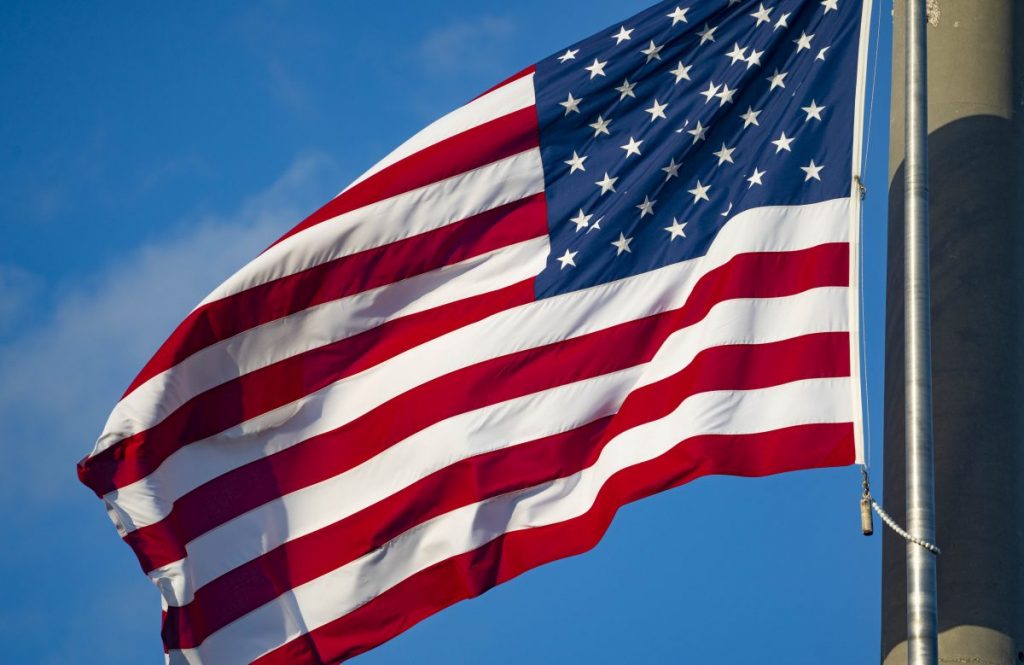
“It’s hard to believe that Mueller couldn’t make a decision about obstruction of justice when Trump’s closest affiliates are going to prison and have spoken about Trump’s involvement,” she said. “I wasn’t surprised Barr made the conclusions he did. It was expected after Mueller didn’t make a decision about obstruction.”
Nicholas Gounaris, a sophomore business law major and a Libertarian, said people are placing more importance on the investigation than they should.
“I think the way people are responding to the report is very volatile, very toxic because people aren’t really accepting the truth,” he said. “They’re still looking for something to nail on President Trump.”
Assistant professor of kinesiology and sport sciences Claire M. Zovko said that most people have already chosen sides on the divisive issue, so the results of the report are irrelevant.
But Zovko, who has a law degree from UM, sees at least one benefit to the political division driving today’s headlines. In her view, the Trump presidency has been a call to action for young people.
“A lot of young people care,” she said. “There’s more fire than ever before, but after fire, people need air, people need space. I wouldn’t be surprised if the next president is more of a calmer presence.”
Despite party lines, the House of Representatives unanimously decided in a 420-0 vote that the report should be made public. Sen. Lindsey Graham, however, did not allow the vote to proceed in the Senate. According to reports, grand jury testimony must remain confidential and therefore poses a barrier to Barr releasing the report.
According to the House Intel Committee, the chairs of six different House committees have asked to see the report by April 2. On Friday, Barr wrote in a letter to Graham and Rep. Jerrold Nadler that the report will be available to Congress “by mid-April, if not sooner.” He also wrote that he hopes to eventually release Mueller’s findings to the public, with all confidential and privileged information redacted.
An informal poll by The Miami Hurricane of university students, professors and staff found that most Republican respondents said the Mueller report should not be released to the public while Democrats and Independents said the full report should be released. National polls show 80 percent of the American public said the report should be released, as well.
Esther Animalu, Carolyn Batchelor, Kayson Davis, Charles Gonzalez, Eli Griswold, Alexis Hurwitz, Anthony Kean, Veronica Lucchese, William McNeil, Alexander Mennella, Talia Mereles, Caroline Pease, Reese Pitts, Suzanne Rieger, Veronika Seider, Tyler Walsh, Damaris Zamudio and Abigail Washer contributed to this reporting.
Reactions from the UM School of Law
What are your thoughts on the Mueller Report?
“As far as I know, the rumor seems to be that the Mueller report doesn’t show enough evidence that Trump actually colluded with the Russian government. Now with that being said, I don’t think that he’s been completely cleared of obstruction of justice charges. The real interesting question surrounding that is, if there’s no crime that you’ve committed, can you even really be charged with obstruction of justice? Now you can make arguments both ways realistically: One, you could say even if there is no crime, actively trying to stop an investigation of a crime that you may not have committed still counts as obstruction. By the same token, you can’t obstruct justice if you haven’t violated the law. “
-Payton Poliakoff, second-year law student, Independent

“I think it’s difficult to say since no one has really seen the report, and the only thing that has been released is a short summary by the attorney general.”
-Robin Schard, associate director, law library, no party affiliation
“Well, this is a democratic government and a democratic country, and each of the institutions has its own role. As of now, the only thing that we know is one of the branches and one of the institutions was actually performing its duties pursuant to the law and the constitution. And everything that we can say as of now was followed. We need to respect the system as it is designed, and I think that’s the only way we can move forward as a democratic country into a better future.
-Paula Arias, director, International Moot Court Program, lecturer in international law topics, no party affiliation
“I’m upset. I mean, I am not convinced that there was not some type of collusion going on. We’ve seen too many incidents and too much stuff going on.
-Sue Demmings, faculty administrative assistant
Should the public have access to the Mueller report?
“It all falls on public interest; it’s kind of like this balancing test. Dissemination of information from the government to the public is important. It’s one of the founding principles of America. We don’t want the government to be tyrannical and completely centralized and control what the public views because our government is governed by the people. By the same token, the interest in dissemination of information should also take into account the level of chaos or a discord that that would cause in the public. And I mean especially now in these current times you have a huge divide in this country. While there are certain pieces of information that the public should absolutely be made aware of, you do want to hesitate before you either release things that are not going to really generate any kind of result other than further dividing the population of this country because right now what we need more than anything is unity.”
– Payton Poliakoff, second-year law student, Independent
“At least the parts that don’t involve any national security or other separate privilege, yes I think so.”
-Robin Schard, associate director, law library, no party affiliation

“I think so. I think in a democratic country, having information, having the people educated and conscious about what’s going on only helps to maintain the transparency and the confidence within the system.”
-Paula Arias, director, International Moot Court Program, lecturer in international law topics, no party affiliation
“[The attorney general] broke it down to only four pages, meaning he only took bits and pieces from the original report. And since he’s a Trump supporter, I’m sure he only put in things that make him look good. Let us see the whole report and let us decide.”
-Sue Demmings, faculty administrative assistant

“I’d like to see the entire report not just the summary. I think for lawyers it’s the details and the arguments and the evidence and the facts that were found that count, not the ultimate conclusion that someone pronounced about collusion or obstruction. I want to see the report not the summary. He didn’t hold the president responsible for obstruction nor did he exonerate him and I want to know how much of that conclusion was based on the evidence the prosecutor found vs how much he felt constrained by the justice department.”
-Stephen J. Schnably, professor of law

Do you think that the media coverage has been biased?
“I think that the media coverage is biased on all sides, and what you find a lot now with the younger generation— and I’m going to speak for millennials only because I’m in the millennial generation— but we’re very adept with technology. You’ll see our parents are very stuck to those three main media outlets: CNN, MSNBC and FOX News, and all of them are very, very, very biased. You find the younger generation is starting to move toward actively looking for more independent sources of information that they’ll find on the internet or elsewhere. But that does require the desire to seek out that information. So, for the people who are interested in seeking out that information, they’ll find the unbiased sources. But for those that are complacent with being force-fed information and maybe don’t want to critically think for themselves, they are going to operate off of those biases that are fed to them through the mainstream media.
-Payton Poliakoff, second-year law student, Independent
“I’m sure each media has its own bias, no matter what, even if they’re trying to be unbiased, but I think the fact that nobody has gotten any information should be a bigger focus than any specific details so far. “
-Robin Schard, associate director, law library, no party affiliation
“I won’t say necessarily biased. I think the media has a point of view, and everyone reports the news based on that point of view. That might make it biased, but I think it’s just a part of the media. They have a perception, they have a way of seeing the issues. Some information may not necessarily be the complete picture, and they just portray their point of view. That’s why the freedom of expression and the freedom of press is so important because everyone should be able to portray and present those ideas from their point of view, and the public should be able to manage and understand the reality and make the conclusions on their own.
-Paula Arias, director, International Moot Court Program, lecturer in international law topics, no party affiliation

Do you think the Mueller report will help or hurt the president?
“Well, I think that right now based on the information that I am objectively aware of and what seems to be going through the rumor mill is that the report doesn’t hurt the president. I think it actually benefits him. t’s been shown that there is no evidence that he actually colluded with the government. That does nothing but help him, while there’s still that aspect, ‘Did he really obstruct justice?’ You know you’re getting into a real kind of, I would like to say, philosophical argument there: Can you really obstruct justice if you haven’t committed a crime? And you know, that is yet to be decided, and that’s for the legal experts, and I am not one yet.”
-Payton Poliakoff, second-year law student, Independent
“I think it would be useful to see that information, and I don’t know without knowing any information. I think that part of making that assumption is part of the problem when people don’t have the information.”
-Robin Schard, associate director, law library, no party affiliation
“I think for those people that think that there was a bias or that there was something not transparent in the process, it will hurt his image. Actually, it is going to help him and the people who continue to support him. I think it goes both ways into whether or not everyone understands the process and what the results of the process are. “
-Paula Arias, director, International Moot Court Program, lecturer in international law topics, no party affiliation
“I hate to say it but I feel like Trump has sold this country to Russia and we just don’t even realize all the things that have happened and will happen in the future.”
-Sue Demmings, faculty administrative assistant
Nathalie Moreau and Alanna Cooper conducted this reporting.
More reactions from around campus
Do you think there was collusion between the Trump administration and Russia?
“I think it should be seen for what it is: A report that found no collusion between the Trump campaign and Russia, and so the country should move back into discussing policy. My only qualm would be with how the attorney general exonerated President Trump, as the report did not suggest that either.”
-Alfonso Cuellar, resident assistant, Stanford Residential College, senior majoring in mathematics, physics and political science

“As a legal studies major, I know that they’re just skirting around the answer because he never said he didn’t find collusion, he just didn’t find evidence of collusion. I want to see what the full report says. Just because there is no evidence of collusion doesn’t mean there is no evidence of other things in terms of relationships between the Trump administration and Russia.”
-Christopher Carson, freshman, legal studies and philosophy major, Democrat
“We had enough proof that there was a bad situation and whether there is collusion or not, we know that Russia interfered. That’s all we need to know. I don’t know why we wasted all of that money because the goal of proving collusion is almost impossible to achieve.”
-Rachida Salama Primov, senior lecturer, director of the Media Center, Democrat

“I believed that Russia may have interfered with the 2016 election, but I never thought that Trump colluded with them.”
-Amanda Lambert, graduate student, Master of Science in Education, Republican
What do you think of how the media has covered the Mueller investigation?
“The news coverage has varied depending on the outlet, but overall the reporting by the mainstream media, including CNN and The New York Times, for example, has been fair and very reasonable. It’s an old trick to attack the messenger and claim bias. The president should rise above such short-sighted behavior and accept that reporting these matters is the role of the news media.”
-Sam Terilli, Department Chair, Journalism and Media Management, School of Communication. Terilli, a lawyer, practiced media, commercial and employment law for more than 30 years, including 12 years as the general counsel of the Miami Herald Publishing Co. and six years as a partner in a national law firm. He has published several articles on media law and management issues.

“I was watching the news with my husband this morning and the title screen graphic was D.C. developments instead Trump’s name, so they’re at least now not always associating it with just him. It’s a constant barrage of against Trump.”
-Leslie Leonard, executive administrative assistant, Department of Student Life, Division of Student Affairs, Independent

“I think the media is biased by definition in the states. Everybody listens to whatever repeats what they believe, and I think unfortunately that’s the way it is. I don’t know how easy it is for the media to be objective. I don’t think they’re objective. They try to be, but they’re not.”
-Rachida Salama Primov, senior lecturer, director of the Media Center, Democrat
Will Trump be exonerated? What will be the political outcome of this investigation?
“The whole investigation was blown out of proportion and a lot of Democrats were putting stock in it hoping to impeach Trump, but it kind of blew up in their faces and they look desperate.”
-Vincent Rasile, finance major, Republican
“Trump’s exoneration smells like a cover up.”
-Natalie Gonzalez, physics and psychology major
“I think that it tips the balance in Trump’s favor. There’s a wide cross section of people in our country that actually support Trump, and this could really give him the ammunition to get reelected.”
-Leslie Leonard, executive administrative assistant, Department of Student Life, Division of Student Affairs, Independent
“Trump hasn’t been found guilty of any crimes… but that doesn’t mean he still won’t be on the hot seat. Trump needs to keep proving himself as a worthy and fearless president.”
-Andrew Burkly, senior business major, Republican
Should the Mueller report be released to the public?
“Summaries are always shortened versions. I don’t think that just because the actual report was long and the summary was short, we should all assume that something substantial is being hidden.”
-Amanda Lambert, graduate student pursuing a Master of Science in Education, Republican
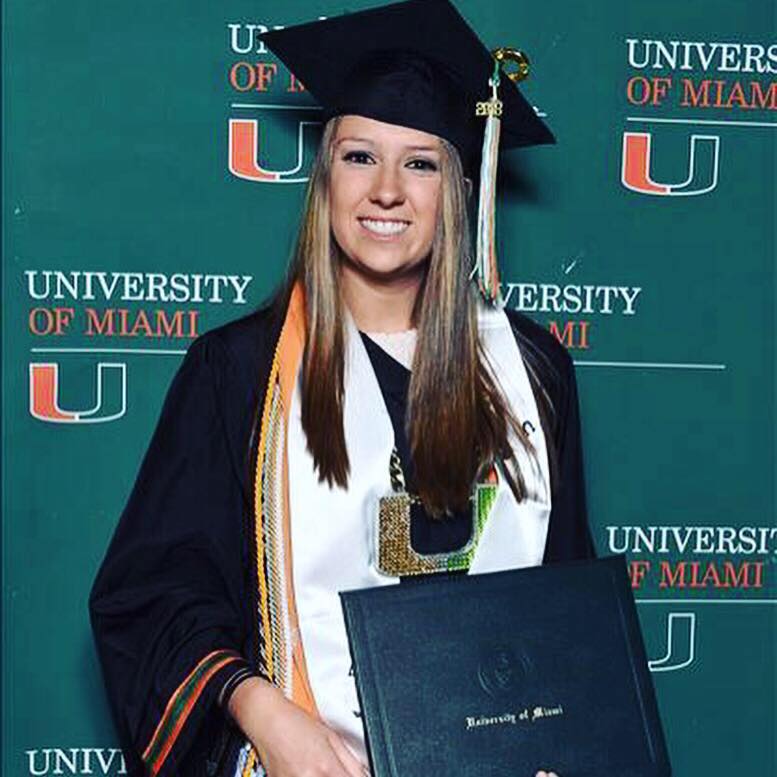
“The fact that the report summary is so short is a little fishy. I am sure there will be journalists that will actually read the entire report if it is released, but things are always up to your interpretation.”
-Abigail Adeleke, Information Desk Student Supervisor, sophomore

“I’m sick of Trump getting away with stuff. I don’t feel like the summary was sufficient. They need to release the whole report to the public so people who aren’t biased or in close proximity to Trump can examine it and end this chaos.”
-Kayla Gardner, junior business marketing major
“I personally feel that the details of the report should be made public rather than to limit our opinions to the conclusions of the attorney general. To go ahead and make broad generalizations based on the attorney general’s review is premature and also misleading.”
-Benigno Recarey, Miami Business School marketing lecturer, Independent
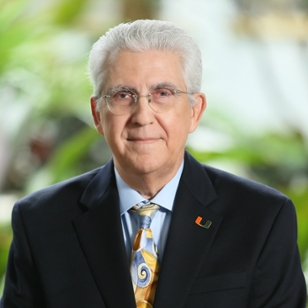
“So far the public has only seen four sentences of the Mueller Report out of the 300 pages. Anybody could have chosen the right four sentences to make Trump look more innocent than he was. But what does the rest of the report have to say? If the people are kept in the dark by this chaos, taxpayers shouldn’t have to pay for it.”
-Cindy Lopera, animal care technician, Department Division of Veterinary Resources, UM Miller School of Medicine
“Barr’s summary is sufficient. Mueller’s report doesn’t need to be made public— unless the results are explicitly stated, it should just be summarized. This story will take another 5 or 6 news cycles to die— with or without the report.”
-Alex Sejas, Junior business management major, Republican

“Barr’s summary should stay public. Mueller’s report will only add confusion.”
-Donald McNeill, professor, marine geosciences, RSMAS, Republican






